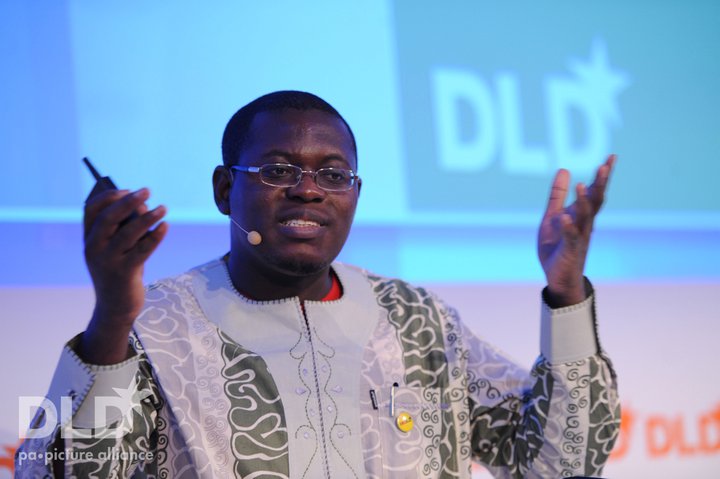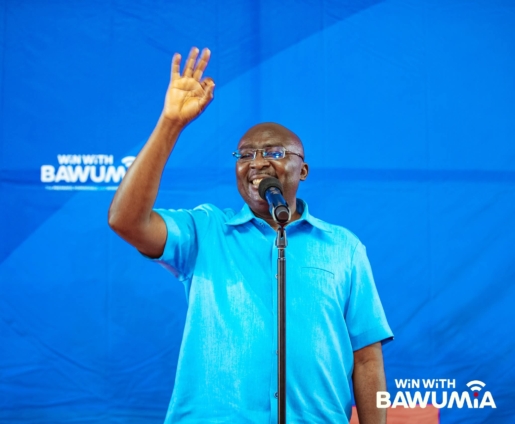Vice-President of IMANI Africa, Bright Simons, says the government has undervalued the 49% shares it wants to offload in the Agyapa Mineral Royalties to potential investors for $1 billion.
With Agyapa Royalties Ltd expected to manage 75.6% of royalties of at least 12 gold mining companies and an additional four more that is expected to become operational, the civil society leader believes the country could get more than the government is asking for.
READ: Minerals Fund Provides 15 Answers Over Agyapa Royalties Deal
“They have the optional mining licences in the agreement which purports to grant this structure the capacity to actually get more. So, to give it away at $1 billion valuations is problematic, too little,” he said on Joy FM’s Newsfile.
“The worst thing you can do is to lock your royalties in a transaction where you more or less get all your money upfront and there is no other fiscal room.
“But that money that you get is far less than the money you get if you had gone to any of the hundreds of gold streaming companies in the world,” he said.
He claimed that the deal is worth 65% more than its current value.
The agreement concerning Agyapa Royalties, a Special Purpose Vehicle (SPV) company was approved on August 14, 2020, by parliament in line with the Minerals Income Investment Fund (MIIF) Act, 2018 (Act 978). This is aimed at using the state firm to secure about $1 billion through prudent management of mineral resources.
Finance Minister’s take
But the Minister of Finance, Ken Ofori-Atta who engaged the media on the deal on Thursday assured Ghanaians that the Agyapa Royalties deal is not to forfeit untapped gold resources for present gains.
Mr Ofori-Atta was emphatic that “there are those who say we should be careful not to mortgage or sell today, the gold in the ground for future generations” but “this is not the case”.
The critics have cited a lack of information on the shareholders of the firm and the registration of the company in a tax haven at Jersey in the United Kingdom.
Jersey
The island of Jersey, one of the European tax havens, offers to its residents a 0% corporate tax and low personal income tax rates. In addition to a favourable tax regime, Jersey Island invites investors with a number of other financial benefits, including low social security payments, no stamp duty on equity transactions, and a straightforward method of making tax and social security contributions.
Due to its attractive investment environment, Jersey has become a popular destination for high-net-worth individuals aiming at minimizing their tax liability. Currently, the Island warehouses almost €2 trillion of investors’ wealth.
At a press conference to address controversies, the Finance Minister, Ken Ofori-Atta, said the government has a responsibility to maxmise the country’s mineral resources.
“If it is okay for the foreign investors who hold the concession to sell what is in the ground upfront then why not us? More importantly, why is it okay to borrow today for the future and not good to use our resources to leverage assets for tomorrow?”
For him, it was time Ghana became creative in exploring sources of funding to support development.
“Every year and every generation we wait we keep millions of people and families stacked in the poverty and sufferings,” he stressed.
He said in most cases investors who are willing to pay a premium for access to our resources exist beyond our borders and therefore “we need to create structures that allow us access to their funding and if we don’t do that we allow ourselves to remain captives to international companies that take our resources and simply market them to the same groups we choose to ignore”.
He said it was sad that a country like Ghana that has been mining gold since the 5th century would still not have any internationally listed company either in gold or even cocoa and “this must come to an end”.
He cited companies that have been able to create more returns than governments who own the resources used by the companies. He singled out Tullow which he said has raised low-priced bonds in the midst of the current economic crises even at a rate lower than the government of Ghana from whom they receive the mandate to extract resources.
“We all, by now, must be tired of being cheated by foreign companies and we are restraining ourselves from using the same vehicles that they use. We have to maximise value of our income that is due the republic from our mineral wealth for the benefit of our citizens and that is the primary aim of the MIIF,” he stressed.
But the alliance of civil society organisations (CSOs) working on extractives, anti-corruption and good governance asked the government to suspend the establishment of the special purpose vehicle (SPV), Agyapa Royalties, to manage the country’s mineral royalties until all documents relating to its establishment and its owners have been disclosed.
CSOs disagree
The CSOs said a consultative process that reflected the views of the people in such an important decision should have been considered.
“What we find even more repulsive about this whole transaction is the provision that permits Agyapa Royalties, a supposed company of the sovereign state registered in a tax haven, to borrow money or raise equity in foreign currency from any source on the back of the gold royalties of Ghanaians without the requirement for any further approval, consent or administrative act of the Government of Ghana – Sect. 33(2)(a).
“Are the managers and directors of Agyapa not politically exposed persons, and were they not selected through a non-competitive process? Just last week, we sighted a call for expression of interest placed in the Daily Graphic, inviting prospective consultants for the development of a strategic plan for the MIIF.
“While we welcome the open and transparent process for the firm selection relative to this assignment, we have not found evidence of the same openness in the creation of the SPV and the appointment of its directors,” the group’s Convenor, Dr Steve Manteaw, said.















